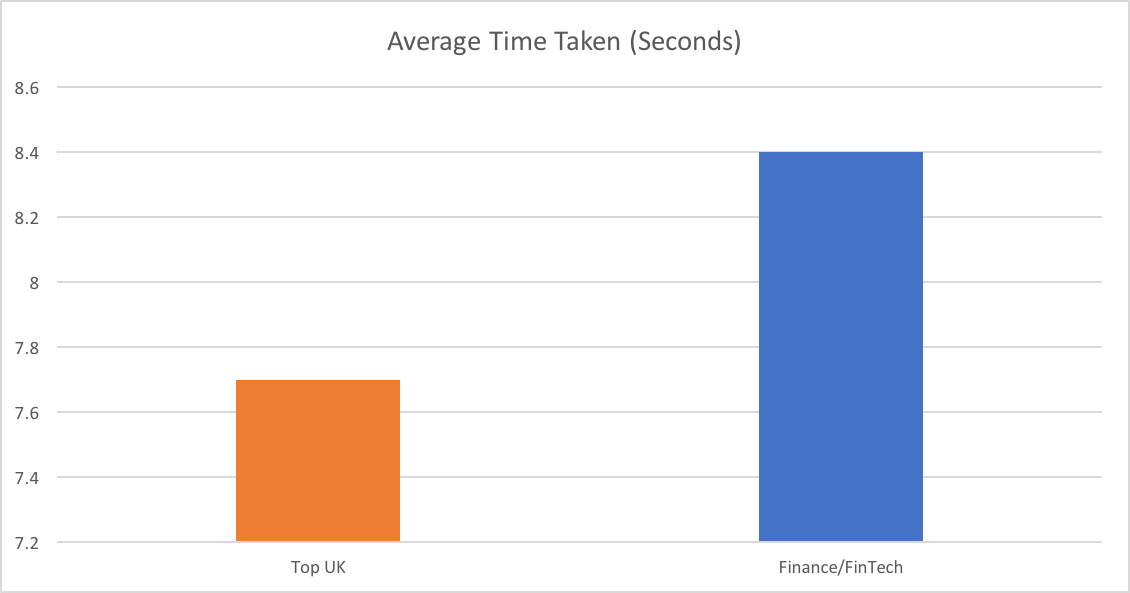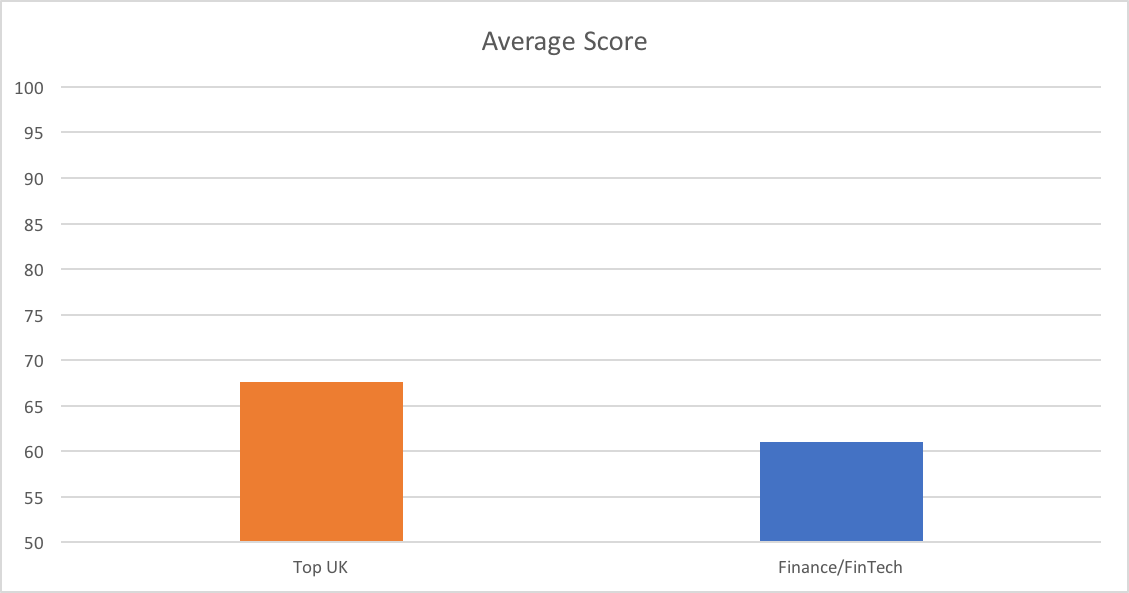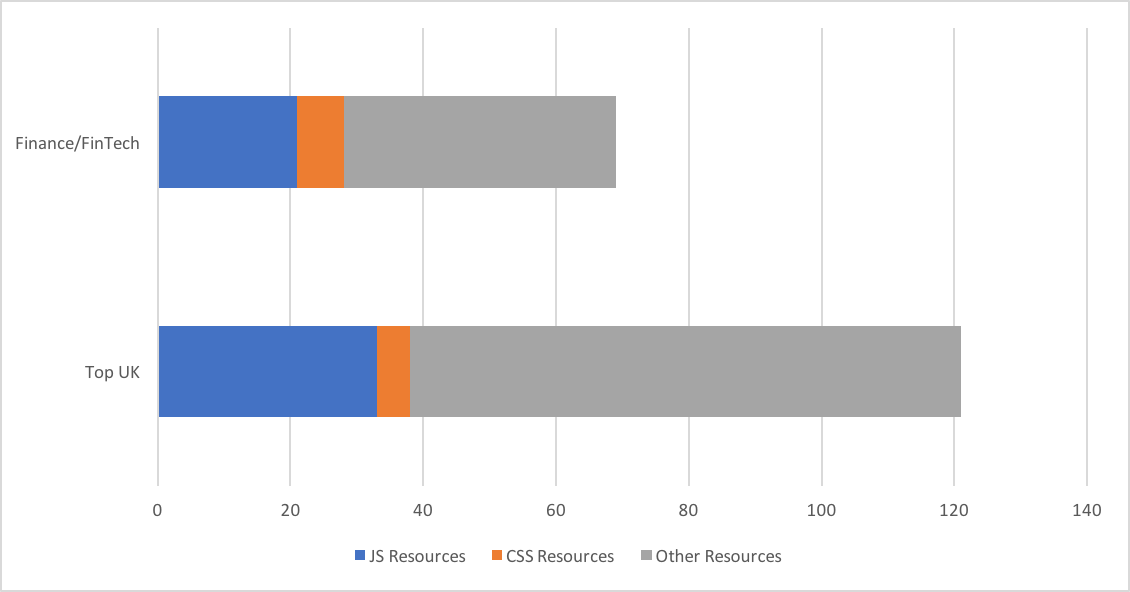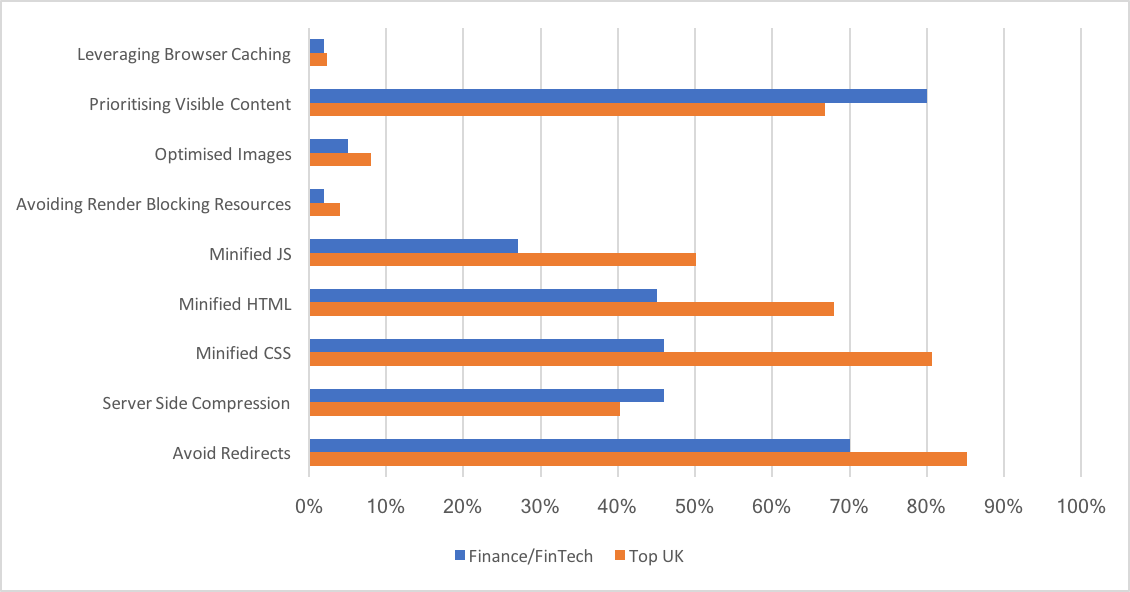Analysis: FinTech vs Top 500 UK Websites
Following on from my previous analysis piece on the Insurance and InsurTech market's websites against those of the Top 500 UK sites, I thought it was about time we did the same for FinTech/Finance/Altfi sites.
The idea here is to compare the average Google PageSpeed scores of the two sets of data, and see how the FinTech/Altfi/Finance world stacks up against the best sites in the UK.
As before, I’ve taken a list of FinTech/AltFi/Finance sites, and a list of top UK websites (from Alexa) and run them all through the Google PageSpeed Insights API. I stored all the results from individual websites, and present the findings to you below. As a bonus, there's a link to all the raw data at the bottom of the post.
Time Taken to Get Result

This is a measure of the time it took Google PageSpeed to do the same calculations that it does in the web interface, and which are detailed below. It’s not directly representative of page load time, but I would imagine the correlation is close. Unlike the insurance markets in the last analysis piece, the finance markets here took around 10% longer to test. This points towards finance websites loading slower than the top UK sites. The faster a page loads, the more likely we are to see both better engagement rates with users and increased organic search traffic, so this is likely something to look at if you run a finance website.
Average Page Score

This shows the average overall page score given by the PageSpeed tool, which is top level summary metric combining the results of all the insights below. It is scored from 0 to 100, with 100 being the best possible result. For the 2nd time, we see that the finance market falls short of the top UK sites, with an average score of 61 vs 68. The specifics of exactly why the score is lower on average is explained further in the next couple of sections, but overall it shows there is opportunity out there for finance and FinTech sites to improve and beat the competition. If you can achieve a score of 90 with your site, you know you are vastly outperforming your average competitor and, as such, have a great chance to outrank them in search and usability.
Number and Type of Resources

This graph shows us the overall number of resources taken to load a website. These include the main page HTML itself, as well as any images, Javascript and CSS. Each resource takes time to request and load from the server, which is the reason for such a strong correlation between these results and the earlier ‘Time Taken’ results. Here the FinTech sites show off the 'tech' part of the moniker by creating their sites with 69 resources rather than 121 on average.
Other Scoring Factors

This graph shows the percentage of websites in each data set which ‘tick the box’ for each of the metrics. To achieve an overall PageSpeed score of 100, your site needs to succeed in each of these areas. A site with a perfect score will leverage browser caching, optimise their images, minify their HTML, etc.
Just like last time out, I'm surprised by the results. Of course, the top sites in the UK are likely to be strong, but I would also expect the forward thinking and technologically advanced companies running the FinTech world would lead to great scores on the tech side of their websites. Apart from prioritising visual content and utilising server-side compression, the FinTech sites lose out across the board to the top UK sites. The great news for any readers who have control of a FinTech website: you can again make great gains on the rest of the market by leveraging browser caching, optimising your images, avoiding render blocking resources, minifying your code, and avoiding redirects.
If I were running a FinTech site myself right now, I'd be downloading the data below, pulling out my main competitors and seeing how my scores compare. Then I'd prioritise the areas I mentioned above to beat that competition in those areas. Maybe, if enough of the market does that, we'll see a positive shift in these figures next time!
Download the full data here.

Author
Jason Dilworth
Jason rolls together knowledge of programming, automation and data analysis to provide a high level of technical marketing expertise to The Marketing Eye and its clients.
Technical Director / The Marketing Eye
Related Reading

Blog: Whatever happened to RateSetter?
by Neil Edwards, 4 minute read

Blog: The Real Cost of Investing with St James's Place
by Neil Edwards, 3 minute read